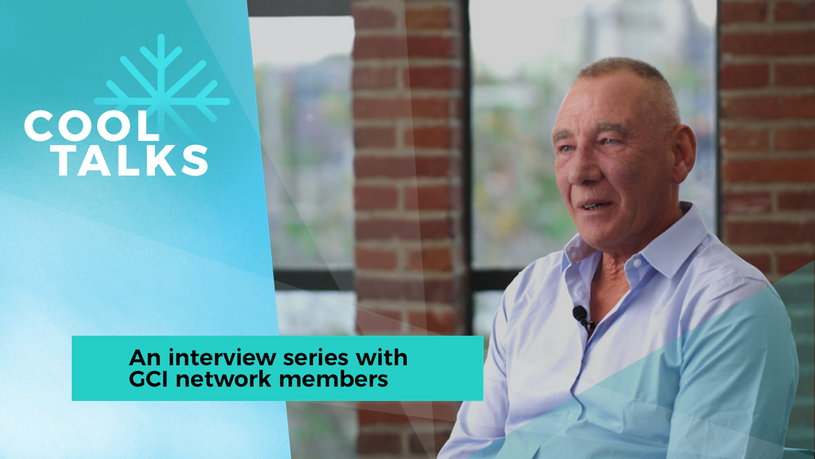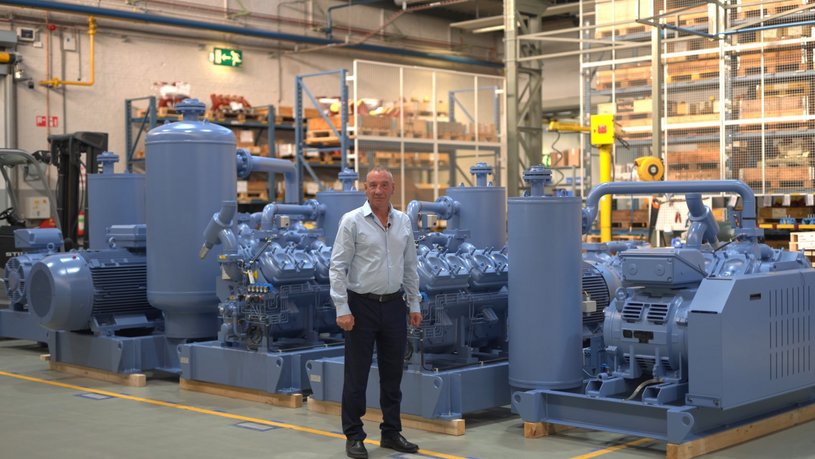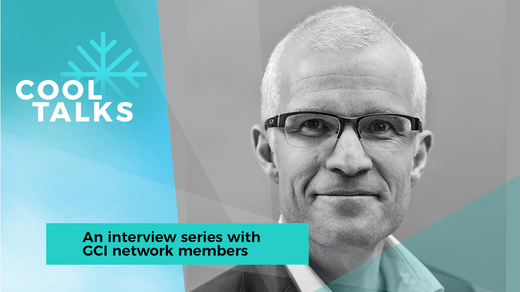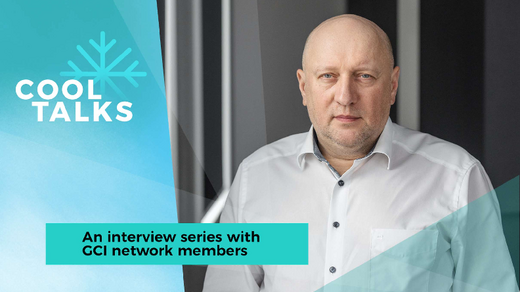For this Cool Talk, we have had the opportunity to interview David Blankley,
Director Product Management Advanced Refrigeration from GEA Heating & Refrigeration Technologies. David has worked in the industrial refrigeration sector for over 35 years. Throughout his career he has had the opportunity to work at leading companies in the field of refrigeration, and he was taught by other experts who always promoted the use of natural refrigerants.
Why joining the Green Cooling Initiative?
GEA has been promoting the use of natural refrigerants and energy efficient cooling & heating for many, many years for a more climate friendly future. And today, we’re at the forefront of technology solutions designed around natural refrigerants. We share the same vision with the Green Cooling Initiative when it comes to the promotion of climate-friendly and energy-efficient cooling solutions, that’s why we are joining this great initiative.
How does your company contribute to making the RAC sector more climate-friendly?
At GEA we've been working with refrigeration systems for 150 years. Our first ammonia compressor dates back to the year of 1910. You could really say that natural refrigerants are in our DNA. We are both familiar and confident with them. Also, we are striving to design energy efficient products and solutions for our customers to reduce their energy consumption as well as carbon footprint. For customers who are still using f-gases, we are promoting and helping them switching to natural refrigerants – by doing so, they cut greenhouse emissions and protect the ozone layer.
Where do you see the biggest obstacle for green cooling technologies at the moment?
That is a good question. I think the biggest obstacle we are facing is customer awareness and customers’ uncertainty for both cooling and heating. It’s true that there is still a lot of choice around and, from a CAPEX point of view, those alternatives might initially look attractive. In reality, the OPEX makes them far less attractive in the long run. Those investing in new refrigerant systems should take a more long-term view, both on the impact of their business and subsequently on the future effects their decisions will have on the environment.
Recently, heat pumps have gained a great popularity as a sustainable technology to help decarbonizing industries and cities. However, many customers were not aware they should also be careful about the refrigerant their heat pump system are running on. So, in many cases, they might install F-gas heat pumps thinking these are sustainable solutions, while overlooking the pollution of these synthetic refrigerants to the environment.
What would an ideal cooling sector look like in the future?
I would like to see natural refrigerants like ammonia, hydrocarbons, and CO2 being used in the most efficient way and used in every aspect of our industry. We can apply these natural working fluids in almost all cases where we are employing refrigeration or heat pump technologies. Generally, we cover probably 95% of the entire refrigeration business. And as companies further develop their cover compressor technologies, their heat exchanger technologies, their system design parameters, as we've seen with ammonia heat pumps and CO2 refrigeration of the last 10 years, we can achieve an awful lot and we can really satisfy every demand the industry has.
What makes you believe that we will master the transition to Green Cooling?
The world must make some decisions very soon. If we focus on the things that we can quickly change, then we can start to halt and even reverse some of the damage we're doing to our environment. We know about the harmful effects of CFCs, HFCs, HCFCs and PFCs. Many of these synthetic refrigerants have been banned for a long time, while others have been phased out thanks to legislation from the EU and international targets. Already in the United States, we're seeing massive lawsuits filed against companies which for many years have been polluting us with their products. Governments understand the true severity of the situation and the actions required and businesses are starting to follow. Not least because of the long lifespan of an ammonia-based system - other refrigerants you may have to reinvest in after 10 years, in order to update or change to another one. If you invest in ammonia for cooling and heating systems, your investment is safe for the next 30 to 40 years or even more.
Speaking of safety: what would you say to people who think natural refrigerants are too risky to handle?
As I said earlier, GEA has been working with ammonia-based systems for more than one hundred years. Some users might have concerns about using natural refrigerants, but they can rest assured that experienced companies such as GEA can expertly install all the necessary safety and ventilation equipment to comply with local regulations. Competent companies eliminate risk through proper designs. Again, we've been building such plants for a very long time, so we know what's required to fully comply with those regulations. On top of that, our fully qualified and trained service teams always ensure that equipment is maintained to the highest possible standards.
And a final question, does GEA operate in developing countries with natural refrigerants? Do you have any insights you can share with us on that?
Our refrigeration engineers have been operating in parts of the world like Africa and Latin America for many years. We have an international division, and they have installed many plants in those regions of the world using natural refrigerants, because they were most often the choice by the customer – and very often multinational companies that operate in those parts of the world, they specify ammonia as a first-choice refrigerant. Ultimately GEA can help any business in any part of the world reach its sustainability targets and make a real green impact on our industry.





